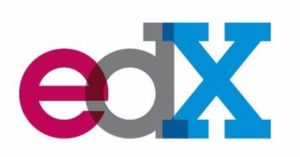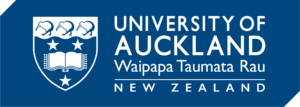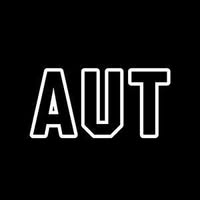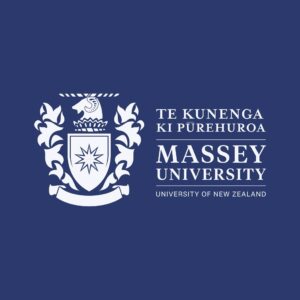New Zealand’s business education landscape offers exceptional opportunities for aspiring entrepreneurs and professionals seeking to advance their careers. With leading institutions like the University of Auckland and Victoria University of Wellington providing world-class programs, students can access comprehensive curricula that blend theoretical knowledge with practical application. The country’s business courses emphasize critical thinking, leadership development, and global perspectives essential for thriving in today’s competitive markets.
From bachelor’s degrees to specialized certificates and hands on courses for entrepreneurs wanting to started, New Zealand’s educational institutions cater to diverse career goals and learning preferences. These programs incorporate hands-on learning through internships, case studies, and real-world projects, ensuring graduates are well-equipped to tackle business challenges. With flexible online options and traditional in-person classes available, there’s a pathway for everyone looking to enhance their business acumen and entrepreneurial skills.
Top Online Course Options in February 2026
1) Coursera

Unlock your full business potential with Coursera, an innovative online learning platform renowned for its vast and varied offerings. Designed in partnership with the world’s most prestigious universities and influential industry leaders, Coursera provides a rich tapestry of business courses. These span crucial domains like effective leadership, astute financial management, cutting-edge marketing strategy, the dynamics of entrepreneurship, incisive data analytics, and the critical imperative of digital transformation.
Coursera’s commitment to flexible, career-focused learning is evident in its diverse range of programs. From practical guided projects that build specific skills to comprehensive professional certificates and specializations, and even advanced MBA-level degrees and focused executive education programs, there’s a path for every ambition. Learners benefit from the assurance of accredited business certifications, the practical application gained through real-world case studies, and the convenience of self-paced learning. The added advantage of lifetime access to course content, the option to audit courses for free, and the availability of financial aid further enhance accessibility.
For an all-encompassing learning experience, the Coursera Plus subscription is a game-changer. It provides unlimited access to thousands of business and management courses under one affordable plan, making it an incredibly cost-effective solution for sustained professional development. Coursera truly democratizes access to top-tier business education, enabling individuals to learn from the best experts whenever and wherever it suits them, ultimately preparing them for significant career milestones, successful transitions, or the exciting venture of starting a new business.
2) EdX

edX is an online learning platform developed by Harvard and MIT that provides high-quality, flexible education from leading universities and industries such as Microsoft. It provides a diverse course catalog, including Professional Certificates, MicroMasters and MicroBachelors, and Fully Online Degree Programs for Bachelor’s, Master’s, and Doctoral degrees. Learners can access course materials for free or earn Verified Certificates, which employers value. edX for Business offers scalable training solutions for enterprises, with a focus on leadership, project management and analytics. The platform serves all professional levels, from foundational courses to executive education and corporate training, promoting career advancement and leadership development.
Top Universities Offering Business Courses in New Zealand
New Zealand’s universities deliver world-class business education that combines academic excellence with practical industry experience. These institutions offer comprehensive programs designed to transform aspiring entrepreneurs and business professionals into confident leaders ready to tackle real-world challenges.
University of Auckland Business School

The University of Auckland Business School stands as New Zealand’s largest and most prestigious business institution. Located in Auckland’s bustling business district, it maintains strong industry partnerships that provide students with unparalleled networking and internship opportunities. The school offers diverse programs including:
Undergraduate Programs:
- Bachelor of Business
- Specializations: Entrepreneurship, Management, Marketing, Business Analytics
- Joint programs with Arts, Computer Sciences, Health Sciences, and International Hospitality
Graduate Programs:
- Master of Business Analytics (15 months)
- Specializations: Marketing, Supply Chain Management, Fintech
- Master of Business Administration (MBA)
The university’s 15-month Master of Business Analytics program stands out for its comprehensive curriculum covering six core areas: business analytics tools, information management, data visualization, predictive analytics, decision-making strategies, and specialized tracks. Nearly 96% of business school graduates secure employment within one year of graduation.
Auckland University of Technology

AUT brings modern, career-focused education to Auckland’s vibrant business scene. Despite being New Zealand’s youngest university (established in 2000), it’s quickly gained recognition for its innovative approach to business education. The campus features state-of-the-art labs and collaborative spaces designed for practical learning.
Key Programs:
- Bachelor of Business
- Conjoint programs combining Business with Computer Sciences, Health Sciences, and International Hospitality
- Master of Business
Specialization Options:
- Applied Finance
- Business Administration (MBA)
- Business Management
- Marketing
- Professional Accounting
- Digital Business and Entrepreneurship
AUT’s Master of Business program enhances earning potential and expands career opportunities through cutting-edge research and practical application. The university emphasizes industry connections, particularly in digital business, marketing, and entrepreneurship sectors.
University of Otago

Founded in 1869, the University of Otago combines rich tradition with academic excellence at its Dunedin campus. The Otago Business School consistently ranks as New Zealand’s top research institution and holds the #1 position for its MBA program nationally.
Program Highlights:
- Bachelor’s degrees with flexible structures
- Major options: Management, Accountancy, Finance, Entrepreneurship, Human Resource Management, International Business, Marketing
- Master of Business programs
- Specializations: Accounting and Finance, Economics, Finance, International Business, Marketing
The Otago MBA Experience:
- Two-phase structure combining essential business foundations with specialized tracks
- Phase 1: Core business areas with collaborative case studies
- Phase 2: Consulting projects, electives, or international exchanges
- Comprehensive extracurricular activities including guest speakers, case competitions, mentoring workshops
The school’s charming city atmosphere and historic campus buildings create a unique study environment. Global partnerships enhance learning through international exchanges and internships, with 95% of graduates moving directly into employment or further study.
Victoria University of Wellington

Victoria University’s Wellington School of Business and Government ranks 6th nationally for business education. The school excels in preparing students for leadership roles across business, law, management, and government sectors.
Academic Offerings:
- Bachelor’s programs
- Departments: Accounting, Taxation and Commercial Law; Economics and Finance; Human Resource Management; Information Systems; Management; Marketing and International Business; Public Policy
- Master of Business – International Business
- Executive MBA for senior professionals
The Executive MBA program develops strategic thinking, decision-making, and leadership capabilities for those seeking senior management positions. Students gain access to leading academics, fellow professionals, and an extensive business network throughout New Zealand’s capital city.
Massey University

Massey University offers New Zealand’s most flexible business education with campuses in Auckland, Wellington, and Palmerston North. Founded in 1927, it ranks second nationally for Business Administration and places among the top 200 globally for accounting and finance programs.
Program Portfolio:
- Bachelor’s degrees
- Specializations: Accounting, Communication, Economics, Finance, Business Law, Management, Māori Business, Marketing, Agribusiness, Business Analytics, Digital Business
- Master’s programs
- Including Master of Digital Business and specialized tracks in Agribusiness, International Management, Leadership Communication
Massey’s strong online learning platform enables remote study, making it ideal for working professionals. The university’s career services help students secure internships and employment across diverse industries including Air New Zealand, ASB Bank, Tourism New Zealand, and Spark New Zealand. Small class sizes ensure personalized attention from approachable faculty members.
Best Undergraduate Business Programs
New Zealand’s universities offer world-class undergraduate business programs that combine academic excellence with practical skills development. These programs prepare students for successful careers in various business sectors while fostering entrepreneurial thinking and innovation.
Bachelor of Commerce Programs
The Bachelor of Commerce (BCom) stands as one of the most prestigious undergraduate business degrees in New Zealand. The University of Auckland’s BCom program ranks 65th globally and offers students 12 specialized majors to choose from. Students can pursue areas like accounting, finance, marketing, and international business while benefiting from the school’s triple accreditation (AACSB, EQUIS, AMBA).
Key features of BCom programs include:
- Flexible study options: Students can complete conjoint degrees combining commerce with other disciplines
- Industry connections: Regular workshops and networking events with business leaders
- Practical experience: Internship opportunities and real-world case studies
- Duration: 3 years full-time study
- Investment: NZD 33,000–42,000 per year at the University of Auckland
The University of Otago’s BCom program emphasizes applied business knowledge with strong entrepreneurship components. Located in Dunedin and ranked 214th worldwide, the Otago Business School provides students with global business strategies and innovation skills.
Bachelor of Business Administration
The Bachelor of Business Administration (BBA) focuses on developing leadership skills and business fundamentals essential for management roles. The University of Waikato’s BBA program stands out with its triple crown accreditation and emphasis on digital business innovation. Students explore emerging technologies, sustainable business practices, and Māori business studies.
Program highlights at different institutions:
- University of Waikato: Offers specialized tracks in digital innovation
- Massey University: Provides flexible learning options including online study
- AUT Business School: Features modern facilities and strong industry partnerships
- Course duration: 3 years standard completion time
Students in BBA programs develop competencies in strategic planning, organizational behavior, and business analytics. The curriculum integrates hands-on projects where students solve real business challenges for local companies. Many programs include a capstone project in the final year where students create comprehensive business plans or consult for actual organizations.
Bachelor of Entrepreneurship
The Bachelor of Entrepreneurship represents an innovative approach to business education for aspiring business owners. The New Zealand Institute of Business and Technology in Dunedin offers a unique 1-year accelerated program designed specifically for innovative business creation. This self-directed degree allows students to tailor their studies to match their entrepreneurial interests and venture ideas.
Distinctive elements of entrepreneurship programs:
- Project-based learning: Students develop actual business concepts from ideation to launch
- Mentorship opportunities: Direct access to successful entrepreneurs and startup advisors
- Innovation labs: Dedicated spaces for prototyping and testing business ideas
- Flexible curriculum: Customizable coursework aligned with individual business goals
Entrepreneurship programs emphasize lean startup methodologies, design thinking, and venture capital fundamentals. Students learn to identify market opportunities, validate business models, and pitch to investors. The curriculum covers essential areas like intellectual property, business law, and growth hacking strategies specific to the New Zealand market.
These undergraduate programs incorporate experiential learning through startup competitions, accelerator programs, and industry placements. Students gain practical skills in areas like e-commerce, social entrepreneurship, and technology commercialization. Many graduates launch their ventures during or immediately after their studies, with universities providing ongoing support through alumni networks and business incubators.
Specialized Business Certificates and Diplomas
New Zealand’s specialized business certificates and diplomas offer focused, practical education for professionals seeking to enhance specific skills without committing to a full degree program. These shorter-term qualifications provide targeted training that’s directly applicable to real-world business scenarios.
Certificate in Small Business
The New Zealand Certificate in Business (Small Business) Level 4 equips learners with essential skills to establish and grow their own ventures. This certificate program focuses on practical business operations, financial management, and strategic planning tailored specifically for small enterprises.
Key Learning Outcomes:
- Develop comprehensive business plans for small enterprises
- Master basic accounting and financial management systems
- Create effective marketing strategies for local markets
- Understand legal requirements for NZ small businesses
- Build customer relationship management skills
Program Details:
- Duration: 6-12 months (part-time options available)
- Delivery: Online, in-person, or blended learning
- Cost: Varies by institution (typically NZD 2,000-4,000)
- Prerequisites: No formal requirements, but basic computer literacy helps
This certificate suits aspiring entrepreneurs, existing small business owners seeking formal qualifications, and employees transitioning to self-employment. Graduates gain confidence in managing day-to-day operations while developing strategies for sustainable growth.
Certificate in Project Management
The New Zealand Certificate in Project Management provides foundational skills applicable across all business sectors. This versatile qualification teaches systematic approaches to planning, executing, and delivering projects on time and within budget.
Core Competencies Covered:
- Apply project management methodologies (Agile, Waterfall)
- Utilize project planning tools and software
- Manage stakeholder relationships effectively
- Control project budgets and timelines
- Lead diverse project teams
Program Structure:
- Duration: 4-8 months depending on study mode
- Format: Flexible delivery with evening and weekend options
- Investment: Approximately NZD 2,500-3,500
- Entry Requirements: Work experience preferred but not mandatory
Project management certificates appeal to professionals in any industry who manage initiatives, coordinate teams, or oversee business improvements. The qualification enhances career prospects across construction, IT, healthcare, and government sectors.
Diploma in Business Management
The New Zealand Diploma in Business Management (Levels 5 and 6) offers comprehensive training for middle management roles and business leadership positions. These diplomas provide deeper knowledge than certificates while remaining more accessible than degree programs.
Level 5 Diploma Features:
- 120 credits focusing on operational management
- Specialization strands: Leadership, Management, or Project Management
- Emphasis on ethical and inclusive business practices
- Cost: Approximately NZD 2,752 for domestic students
- Duration: 1 year full-time or 2 years part-time
Level 6 Diploma Advantages:
- Advanced strategic management concepts
- Innovation and change management modules
- International business perspectives
- Pathway to bachelor’s degree programs
- Higher earning potential in management roles
| Diploma Comparison | Level 5 | Level 6 |
|---|---|---|
| Focus Area | Operational Management | Strategic Leadership |
| Credit Value | 120 credits | 120 credits |
| Typical Duration | 1 year | 1-1.5 years |
| Career Level | Supervisor/Team Leader | Manager/Department Head |
| Average Cost | NZD 2,700-5,000 | NZD 3,500-6,000 |
Business management diplomas prepare graduates for roles such as operations managers, team leaders, and department supervisors. The practical curriculum combines case studies, group projects, and industry placements to ensure work-ready graduates. Many institutions offer flexible study options including evening classes and online modules to accommodate working professionals.
These specialized qualifications represent excellent value for professionals seeking targeted skill development without the time and financial commitment of a full degree. They’re particularly valuable for career changers, entrepreneurs needing formal business training, and employees preparing for management responsibilities.
Online and Distance Learning Business Courses
Online and distance learning business courses have revolutionized education accessibility in New Zealand, offering flexible pathways for professionals and entrepreneurs to advance their careers without disrupting their current commitments. These programs combine the academic rigor of traditional education with the convenience of modern technology, making quality business education available to learners across the country.
Flexible Study Options
New Zealand’s leading universities have embraced flexible learning formats to accommodate diverse student needs. Massey University stands out with its Bachelor of Business program, available through distance learning with both full-time and part-time options spanning 3 years. The program boasts an impressive 85% graduate employment rate within 6 months, demonstrating the effectiveness of remote business education.
Universities across New Zealand offer multiple study pathways:
- Self-paced learning modules allowing students to progress at their own speed
- Asynchronous course delivery enabling access to materials 24/7
- Mixed-mode options combining online learning with occasional campus visits
- Modular programs where students can complete individual courses toward a qualification
The University of Auckland enhances distance learning with an 8-week part-time online course in Logical and Critical Thinking, specifically designed for business decision-making. This targeted approach allows professionals to develop specific skills without committing to full degree programs.
Distance learners benefit from comprehensive digital resources including virtual libraries, online tutoring services, and collaborative platforms that facilitate peer interaction. Business English (Level 3) courses are particularly popular among international students, offering practical communication skills essential for New Zealand’s business environment.
Part-Time Programs
Part-time business education has become increasingly sophisticated in New Zealand, with universities designing programs specifically for working professionals. The University of Waikato’s Master of Management Studies offers both full-time and part-time pathways, with the part-time option extending the program duration while maintaining the same comprehensive curriculum from their Triple Crown Accredited business school.
Victoria University of Wellington’s Master of Global Business (MGBus) typically runs as a 12-month full-time program but accommodates part-time students through flexible scheduling. The program focuses on global business strategy and accepts graduates from any field, making it accessible to career changers.
Part-time study arrangements typically include:
- Evening and weekend classes for on-campus components
- Block course delivery concentrating learning into intensive periods
- Reduced course loads spreading the program over 2-4 years
- Workplace-integrated projects allowing students to apply learning immediately
Auckland University of Technology (AUT) structures its undergraduate business degrees to accommodate part-time students over extended periods, typically doubling the standard 3-year duration. Their postgraduate programs, normally 1.5 years full-time, extend to 3 years for part-time students while maintaining strong industry connections throughout.
Executive Education
Executive education in New Zealand targets senior professionals seeking strategic leadership development without pursuing full degrees. Leading universities offer specialized programs focusing on contemporary business challenges, though specific online executive courses vary by institution and require direct inquiry for current offerings.
Executive programs typically feature:
- Intensive workshops spanning 2-5 days on specific topics
- Custom corporate training tailored to organizational needs
- Leadership retreats combining learning with networking opportunities
- Certificate programs in specialized areas like digital transformation
The University of Canterbury delivers executive education through its strong programs in finance and entrepreneurship, with fees ranging from NZD 30,000-54,600 annually for comprehensive programs. These courses emphasize practical application and peer learning among senior professionals.
Wellington School of Business, ranking 6th in New Zealand, offers executive programs leveraging its strengths in business law, management, and governance. Their approach combines academic excellence with real-world case studies relevant to New Zealand’s business landscape.
Executive education participants benefit from:
- Small cohort sizes ensuring personalized attention
- Industry expert guest speakers sharing current insights
- Action learning projects addressing real organizational challenges
- Global study tours examining international best practices
Universities increasingly offer hybrid executive programs combining online modules with intensive face-to-face sessions. This format allows executives to maintain their professional responsibilities while engaging in transformative learning experiences. The focus remains on developing strategic thinking, innovation capabilities, and leadership skills essential for navigating complex business environments.
Business Course Specializations Available
Business courses in New Zealand offer diverse specialization pathways that align with specific career goals and industry demands. Students can choose from traditional fields like accounting and finance or explore emerging areas such as digital marketing and international business management.
Accounting and Finance
Accounting and finance specializations remain the most sought-after business disciplines in New Zealand universities. The University of Auckland’s BCom program offers comprehensive accounting courses covering financial reporting, auditing, and taxation systems specific to New Zealand’s regulatory environment. Students learn essential skills including financial analysis, budgeting, and investment management through practical case studies and industry partnerships.
Finance programs at institutions like the University of Canterbury emphasize quantitative analysis and risk management. Core modules include:
- Financial modeling and valuation techniques
- Corporate finance and capital structure decisions
- Investment portfolio management
- Banking and financial markets analysis
- Financial technology (fintech) applications
Massey University’s accounting program integrates professional certifications with academic study. Students can work toward Chartered Accountants Australia and New Zealand (CA ANZ) accreditation while completing their degree. The curriculum includes specialized courses in forensic accounting, sustainability reporting, and data analytics for financial professionals.
| Specialization Focus | Key Skills Developed | Career Outcomes |
|---|---|---|
| Financial Accounting | Reporting, compliance, auditing | Financial accountant, auditor |
| Management Accounting | Cost analysis, budgeting, forecasting | Management accountant, financial analyst |
| Corporate Finance | Capital raising, M&A, valuation | Investment banker, corporate treasurer |
| Financial Planning | Wealth management, tax planning | Financial advisor, wealth manager |
Marketing and Digital Marketing
Marketing specializations have evolved significantly to meet digital transformation demands. Auckland University of Technology (AUT) leads with its digital marketing focus, teaching students to navigate social media marketing, search engine optimization, and content strategy development. The program emphasizes data-driven decision making and consumer behavior analysis in digital environments.
Victoria University of Wellington’s marketing specialization combines traditional marketing principles with cutting-edge digital strategies. Students develop competencies in:
- Brand management and positioning strategies
- Digital advertising and programmatic buying
- Marketing analytics and performance measurement
- Consumer psychology and market research
- E-commerce and mobile marketing tactics
The University of Waikato offers specialized courses in marketing automation and customer relationship management systems. Practical projects involve creating comprehensive digital marketing campaigns for real New Zealand businesses. Students learn to use industry-standard tools like Google Analytics, Facebook Business Manager, and marketing automation platforms.
Digital marketing modules specifically address New Zealand market conditions, including cultural considerations for Māori and Pacific Island consumers. Courses cover influencer marketing strategies, user-generated content campaigns, and omnichannel retail experiences tailored to local consumer preferences.
International Business
International business specializations prepare students for global commerce challenges while maintaining strong connections to New Zealand’s export-oriented economy. Massey University’s program stands out with its focus on Asia-Pacific trade relationships and cross-cultural negotiation skills. Students explore international market entry strategies, global supply chain management, and foreign exchange risk management.
The University of Auckland’s international business track emphasizes practical experience through exchange programs with partner universities across 40 countries. Core competencies developed include:
- International trade law and regulations
- Global business strategy formulation
- Cross-cultural communication and management
- International finance and foreign investment
- Emerging market analysis and entry strategies
Victoria University of Wellington integrates sustainability and ethical considerations into its international business curriculum. Students examine corporate social responsibility in global contexts, sustainable supply chain practices, and environmental regulations affecting international trade. The program includes intensive language learning options to enhance global communication capabilities.
Study abroad opportunities and international internships form integral parts of these programs. Partner organizations include multinational corporations operating in New Zealand, government trade agencies, and international non-governmental organizations.
Human Resource Management
Human resource management specializations address the evolving workplace dynamics in New Zealand organizations. Massey University’s comprehensive HRM program combines theoretical frameworks with practical applications for effective people management. Students develop expertise in talent acquisition, performance management systems, and organizational development strategies.
The University of Canterbury’s HRM specialization emphasizes evidence-based practices and strategic workforce planning. Key learning areas include:
- Employment law and industrial relations in New Zealand
- Compensation and benefits design
- Learning and development program creation
- Workplace diversity and inclusion initiatives
- HR analytics and workforce data interpretation
AUT’s human resource management courses integrate technology solutions with traditional HR practices. Students learn to implement human resource information systems (HRIS), conduct virtual recruitment processes, and manage remote workforce challenges. The curriculum addresses contemporary issues like workplace mental health, flexible work arrangements, and employee wellbeing programs.
Specialized electives cover change management, leadership development, and conflict resolution techniques. Industry partnerships provide opportunities for HR consulting projects with New Zealand businesses. Students engage with professional bodies like the Human Resources Institute of New Zealand (HRINZ) through guest lectures and networking events.
Human resource management: AUT Bachelor of Business – Human Resource Management and Employment Relations
Workforce diversity: Creating inclusive workplaces for all ethnic groups and age demographics
Employee wellbeing programs: Mental health support and flexible working arrangements
Professional development: Continuous learning opportunities and career progression pathways
Entry Requirements and Admission Process
Getting into New Zealand’s business programs requires meeting specific academic and language standards. Each university has its own requirements, but most follow similar admission processes that evaluate students’ qualifications and readiness for business education.
Academic Prerequisites
Students need to meet different academic requirements depending on their chosen program level. For undergraduate programs like the Bachelor of Business at Massey University or Bachelor of Commerce at the University of Auckland, applicants must have:
- NCEA Level 3 certification (New Zealand Certificate) with appropriate credits
- Cambridge International Examinations or International Baccalaureate qualifications for international students
- High school diploma or equivalent certificate from recognized institutions
- University entrance qualification that meets New Zealand’s national standards
Postgraduate programs have more stringent requirements. The Master of Global Business at Victoria University of Wellington and the Master of Management Studies at the University of Waikato require:
- Appropriate undergraduate degree in business or related field
- Bachelor’s degree with minimum GPA requirements (varies by institution)
- Professional experience for executive programs and specialized MBAs
- Credit exemptions available for students with NCEA Level 3 merit grades in relevant subjects
English Language Requirements
All business programs in New Zealand require proof of English proficiency for non-native speakers. Universities accept several standardized tests:
- IELTS Academic: Most programs require a minimum overall score of 6.0-6.5 with no band below 5.5
- TOEFL iBT: Typical requirement is 80-90 total score
- PTE Academic: Usually requires 50-58 overall score
- Cambridge English: C1 Advanced or C2 Proficiency accepted
Students who don’t meet language requirements can enroll in English for Academic Purposes (EAP) courses offered by universities. These preparatory programs help students develop necessary language skills before starting their business studies.
Application Steps
The application process for New Zealand business schools follows a structured approach:
- Check entry requirements on the university’s official website for your specific program
- Prepare required documents including:
- Academic transcripts and certificates
- Valid identification (passport or birth certificate)
- Proof of residency or citizenship for domestic students
- English language test results
- Submit online application through the university’s admission portal
- Apply for credit exemptions if you have previous study results that qualify
- Await admission decision which typically takes 2-4 weeks
- Accept offer and complete enrollment requirements
Domestic New Zealand students must be citizens or residence visa holders and meet age requirements (typically 16+ for undergraduate programs). International students need to apply for student visas after receiving their offer letter.
Most universities have multiple intake periods throughout the year, with major intakes in February/March and July. Some institutions like Auckland University of Technology offer additional intakes for specific programs, providing flexibility for students’ academic planning.
Scholarships and Financial Aid Options
New Zealand’s business schools offer numerous financial aid opportunities to make quality business education accessible to both domestic and international students. These funding options range from government-backed scholarships to university-specific grants that can significantly reduce the financial burden of pursuing business studies.
Government Scholarships
The New Zealand government provides competitive scholarship programs designed to support international students pursuing business degrees. The Manaaki New Zealand Scholarships target students from Asia-Pacific countries and cover both undergraduate and postgraduate business programs. These scholarships often require recipients to contribute to their home countries after graduation.
Government-funded options include the Fulbright New Zealand General Graduate Awards for exceptional students. The New Zealand International Doctoral Research Scholarships (NZIDRS) support doctoral candidates in business fields. Commonwealth Scholarships offer additional opportunities for students from Commonwealth nations.
Each scholarship has specific eligibility criteria based on academic merit and country of origin. Application deadlines typically fall between March and October depending on the program. Students must demonstrate strong academic records and leadership potential to qualify for these prestigious awards.
University-Specific Funding
Leading business schools across New Zealand provide merit-based scholarships targeting high-achieving students. The University of Auckland offers the Auckland MBA Scholarship and the Auckland International Business Scholarship for international students. These awards recognize academic excellence and support students pursuing advanced business degrees.
Victoria University of Wellington provides multiple funding options for its Master of Global Business program. The University of Otago’s Business School offers specialized scholarships including:
- Business School Student Exchange Scholarships
- International Postgraduate Scholarships
- Merit-based awards for specific business majors
International Student Support
New Zealand universities provide comprehensive support services extending beyond financial aid to ensure international business students thrive academically and culturally. Universities offer orientation programs specifically designed for international students entering business programs. These sessions cover academic expectations and New Zealand business culture.
Academic guidance services help students navigate course selection and degree requirements. Career services departments provide specialized support for international students seeking internships and employment opportunities in New Zealand’s business sector. Many institutions offer mentorship programs pairing international students with local business professionals.
Cultural integration programs facilitate connections between international and domestic students through business clubs and networking events. Language support services assist non-native English speakers in developing business communication skills. Universities also provide visa guidance and accommodation assistance to ease the transition for international students.
Additional support includes access to counseling services and health care guidance. Many business schools maintain dedicated international student advisors who understand the unique challenges faced by overseas students. These comprehensive support systems ensure international students can focus on their studies while building valuable networks in New Zealand’s business community.
Career Opportunities After Business Studies
Business graduates in New Zealand enter a dynamic job market with diverse opportunities across multiple sectors. The country’s strong economy and innovative business environment create pathways for graduates to pursue careers in finance, marketing, management, consulting, and entrepreneurship.
Industry Connections
New Zealand’s business schools maintain strong partnerships with leading companies and organizations, creating direct pathways from education to employment. The University of Auckland’s Business School collaborates with over 200 industry partners, including Air New Zealand, ASB Bank, and Spark New Zealand, providing students with internship opportunities and networking events throughout their studies.
AUT’s employer-integrated curriculum ensures students work on real business projects with companies like BP Oil NZ, Fuji Xerox NZ, and Tourism New Zealand. These partnerships offer:
- Internship programs lasting 3-6 months with potential for full-time employment
- Industry mentorship connecting students with senior professionals
- Case competitions sponsored by major corporations
- Guest lecture series featuring CEOs and business leaders
- Career fairs exclusive to business students
The University of Waikato’s connections with Hamilton’s business community provide access to emerging tech startups and established agricultural businesses. Meanwhile, Victoria University of Wellington leverages its capital city location to connect students with government agencies, financial institutions, and international organizations.
Professional Development Pathways
Business education in New Zealand creates multiple pathways for continuous professional growth and career advancement. Graduates typically progress through several career stages, each offering opportunities for specialization and leadership development.
Early Career (0-3 years):
- Graduate programs at major corporations
- Business analyst roles in various industries
- Marketing coordinator positions
- Junior consultant opportunities
- Entrepreneurial ventures with startup incubator support
Mid-Career (3-7 years):
- Team leadership and supervisory roles
- Specialized positions in chosen fields
- Project management responsibilities
- Strategic planning involvement
- Professional certifications (CPA, CFA, PMP)
Senior Career (7+ years):
- Executive management positions
- Director-level appointments
- Business ownership opportunities
- Board memberships
- International assignments
Professional associations play a crucial role in career development for business graduates. Organizations like the Institute of Directors, Marketing Association of New Zealand, and Human Resources Institute of New Zealand offer:
- Continuing education programs keeping professionals current with industry trends
- Networking events connecting members with industry leaders
- Professional certifications enhancing career credentials
- Mentorship programs pairing emerging professionals with experienced executives
- Industry conferences showcasing latest business innovations
Many business graduates pursue additional qualifications to advance their careers. Popular options include:
- Executive MBA programs for senior leadership preparation
- Specialized master’s degrees in areas like finance or marketing
- Professional diplomas in project management or business analysis
- Short courses in emerging areas like digital transformation
- International certifications recognized globally
The flexibility of New Zealand’s business education system allows professionals to continue learning while working. Universities offer part-time, evening, and online programs designed for working professionals seeking career advancement.
Entrepreneurship represents another significant pathway for business graduates. New Zealand’s supportive startup ecosystem includes:
- Business incubators providing mentorship and resources
- Government grants supporting innovative ventures
- Angel investor networks funding promising startups
- Co-working spaces fostering collaboration
- Startup competitions offering prizes and exposure
The combination of quality education, practical experience, and ongoing professional development opportunities positions business graduates for successful, fulfilling careers in New Zealand’s dynamic economy. Whether pursuing corporate leadership, launching entrepreneurial ventures, or specializing in specific business functions, graduates find numerous pathways to achieve their professional goals.
Accreditations and Rankings
New Zealand’s business schools have achieved remarkable international recognition through prestigious accreditations that place them among the world’s elite institutions. These accreditations serve as quality benchmarks that ensure graduates receive education meeting the highest global standards.
AACSB Accreditation
The Association to Advance Collegiate Schools of Business (AACSB) represents the gold standard in business education accreditation. Only 6% of business schools worldwide hold this prestigious recognition. In New Zealand, several institutions have earned AACSB accreditation including the University of Canterbury Business School, University of Otago Business School, and Wellington School of Business and Government.
AACSB accreditation guarantees:
- Excellence in curriculum design that meets evolving business needs
- Highly qualified faculty with terminal degrees and industry expertise
- Continuous improvement systems ensuring programs stay current
- Research standards that contribute to business knowledge advancement
- Graduate preparedness for immediate professional performance
Victoria University of Wellington’s business school stands out with dual AACSB accreditation in both Business and Accounting. This distinction signals elite standards across multiple disciplines. The University of Canterbury has achieved the rare “Triple Crown” accreditation holding AACSB, EQUIS, and AMBA simultaneously.
Conclusion
New Zealand’s business education landscape offers exceptional opportunities for students at every stage of their professional journey. The country’s universities have established themselves as global leaders through prestigious accreditations and innovative teaching methods that blend academic excellence with real-world application.
Whether someone’s seeking an undergraduate degree to launch their career or pursuing executive education to reach new leadership heights, they’ll find programs tailored to their ambitions. The flexibility of online and part-time options means working professionals don’t have to choose between education and their current responsibilities.
With strong industry connections, impressive graduate employment rates, and a thriving entrepreneurial ecosystem, business graduates in New Zealand are well-positioned for success. The combination of internationally recognized qualifications, practical experience opportunities, and comprehensive support systems creates an environment where students can truly excel.
For those ready to invest in their future, New Zealand’s business schools provide the knowledge, skills, and networks needed to thrive in today’s competitive global marketplace. The journey toward business excellence starts with choosing the right program that aligns with individual goals and aspirations.
Frequently Asked Questions
What are the top business schools in New Zealand?
The University of Auckland Business School leads with strong industry partnerships and high graduate employment rates. Other top institutions include Victoria University of Wellington for leadership development, University of Otago for its #1 ranked MBA program, Auckland University of Technology for career-focused education, and Massey University for flexible online learning options.
Which business course is easiest to get into in New Zealand?
Bachelor of Business Administration (BBA) programs typically have more flexible entry requirements compared to specialized degrees. Programs at AUT and Massey University often accept students with NCEA Level 3 and offer foundation courses for those who don’t meet direct entry requirements.
What are the admission requirements for business programs?
Undergraduate programs require NCEA Level 3 certification or equivalent international qualifications. Postgraduate programs need a relevant bachelor’s degree with good grades. International students must demonstrate English proficiency through IELTS (6.5) or TOEFL. Some MBA programs also require work experience and GMAT scores.
Which business specialization is most in demand in New Zealand?
Digital marketing, data analytics, and fintech specializations are highly sought after. The tech and innovation sector is booming in New Zealand, creating strong demand for graduates with skills in digital business transformation, e-commerce, and agritech business management.
Can I study business online in New Zealand?
Yes, Massey University offers fully online business degrees with an 85% graduate employment rate. The University of Auckland and other institutions provide hybrid options combining online learning with occasional campus visits. These programs offer the same qualifications as on-campus study.
What career opportunities are available after business graduation?
Graduates find roles in finance, marketing, consulting, management, and entrepreneurship. Starting salaries range from NZ$50,000-70,000, with MBA graduates earning higher. New Zealand’s supportive startup ecosystem also provides excellent opportunities for launching businesses.
Are New Zealand business degrees internationally recognized?
Yes, several universities hold prestigious AACSB accreditation, achieved by only 6% of business schools worldwide. The University of Otago and University of Canterbury have this distinction. QS World Rankings also recognize New Zealand business programs, ensuring global employer recognition.
Note:AGR Technology may receive a commission on sales generated by partner links on this page. By no means is this article designed to be financial advice. While we vet each platform we mention on our website and provide regular content updates, we recommend that you conduct extensive research before making investment decisions.
Related resources:
Top Small business Learning Management Systems (LMS)
Leading global online business courses for new entrepreneurs
School Website Design Services
Source(s) cited:
https://scontent.fmel16-1.fna.fbcdn.net/v/t39.30808-6/316267339_515120053982006_7925447715200255695_n.jpg?_nc_cat=1&ccb=1-7&_nc_sid=6ee11a&_nc_ohc=b0aN-dfaDi8Q7kNvwHQnWh5&_nc_oc=AdlUOO7vDJBisRjD0D_o6XbRoFbSAwQPT6OTw7KpDURnJnHXhLDjRS8nKbQT3E3I0mg&_nc_zt=23&_nc_ht=scontent.fmel16-1.fna&_nc_gid=6G5ZjsXBbDE39dMJT2AGKw&oh=00_AfSgwgcWFixl6TO-BF8JQM-XQ0GUwK3sUF1B6R-EZ2v-qg&oe=6872678D.
Accessed July 8, 2025. https://scontent.fmel16-1.fna.fbcdn.net/v/t39.30808-1/313201923_482256280602713_3805098519791203192_n.png?stp=dst-png_s160x160&_nc_cat=103&ccb=1-7&_nc_sid=2d3e12&_nc_ohc=dq6JjKykXYUQ7kNvwEY5DgE&_nc_oc=AdlcvKrfs5dZkl5nv0CqjpNAGqi4U0l-lSpmESyg5xIc84YZ4belzcCfP6JmDguwBhY&_nc_zt=24&_nc_ht=scontent.fmel16-1.fna&_nc_gid=kt81Vs8cPDY9TRv_6lSy0g&oh=00_AfTJfsNAaRMoSKl_odpGfbknqP7KVLZ0UvBvj_7lX1JGsQ&oe=687262B6.
scontent.fmel16-1.fna.fbcdn.net/v/t39.30808-6/440096759_845656537594555_7435371150186843125_n.jpg?_nc_cat=104&ccb=1-7&_nc_sid=6ee11a&_nc_ohc=jd9X6yvBzoEQ7kNvwGrkDAu&_nc_oc=AdlJnAjUXiwPZDRH6iL8alQj7vhbjAsvDbsFNeql4Dq3yESKSCogJhu2AHP793FwXSA&_nc_zt=23&_nc_ht=scontent.fmel16-1.fna&_nc_gid=j8pqmE0j6mjsH4XuW5Eg0g&oh=00_AfS_GVwIcNDK8mvi-CYYxcxJI7aalsC269A23yzfCTZD4g&oe=68725C27. Accessed 8 July 2025.
[Online]. Available at: https://scontent.fmel16-1.fna.fbcdn.net/v/t39.30808-1/347805869_163719179754333_5051414292886804523_n.jpg?stp=dst-jpg_s200x200_tt6&_nc_cat=101&ccb=1-7&_nc_sid=2d3e12&_nc_ohc=ZKm2gV3_r14Q7kNvwFFrKug&_nc_oc=Adlr7gQtcT2oUkz-muhDdQePp21lnNuQuof6LsHzZlRR4jTRY8_0-DD6V_sVJ8RgOLI&_nc_zt=24&_nc_ht=scontent.fmel16-1.fna&_nc_gid=LrL-ROkjNSpoyPddZXDNlQ&oh=00_AfTrPyCWbNJVtNbl-pFRKMQoFpbaSeDrBRQPHK4blmFcCw&oe=687264B0 (Accessed: 8 July 2025).
Li, V. (2023, April 6). Graduate Destination Survey 2019. https://www.auckland.ac.nz/assets/alumni/our-alumni/GDS/Graduate%20Destination%20Survey%202021%20updated%20on%20April%202023.pdf
[Online]. Available: https://cdn.sin0sites.com/1840253943774203904/cHVcV_1845713571821584384/UoA_Logo_DarkBlue_RGB_Landscape.png?x-oss-process=image/resize,w_2500. [Accessed: 8-July-2025].

Alessio Rigoli is the founder of AGR Technology and got his start working in the IT space originally in Education and then in the private sector helping businesses in various industries. Alessio maintains the blog and is interested in a number of different topics emerging and current such as Digital marketing, Software development, Cryptocurrency/Blockchain, Cyber security, Linux and more.
Alessio Rigoli, AGR Technology
![logo-new-23[1] logo-new-23[1]](https://agrtech.com.au/wp-content/uploads/elementor/thumbs/logo-new-231-qad2sqbr9f0wlvza81xod18hkirbk9apc0elfhpco4.png)

